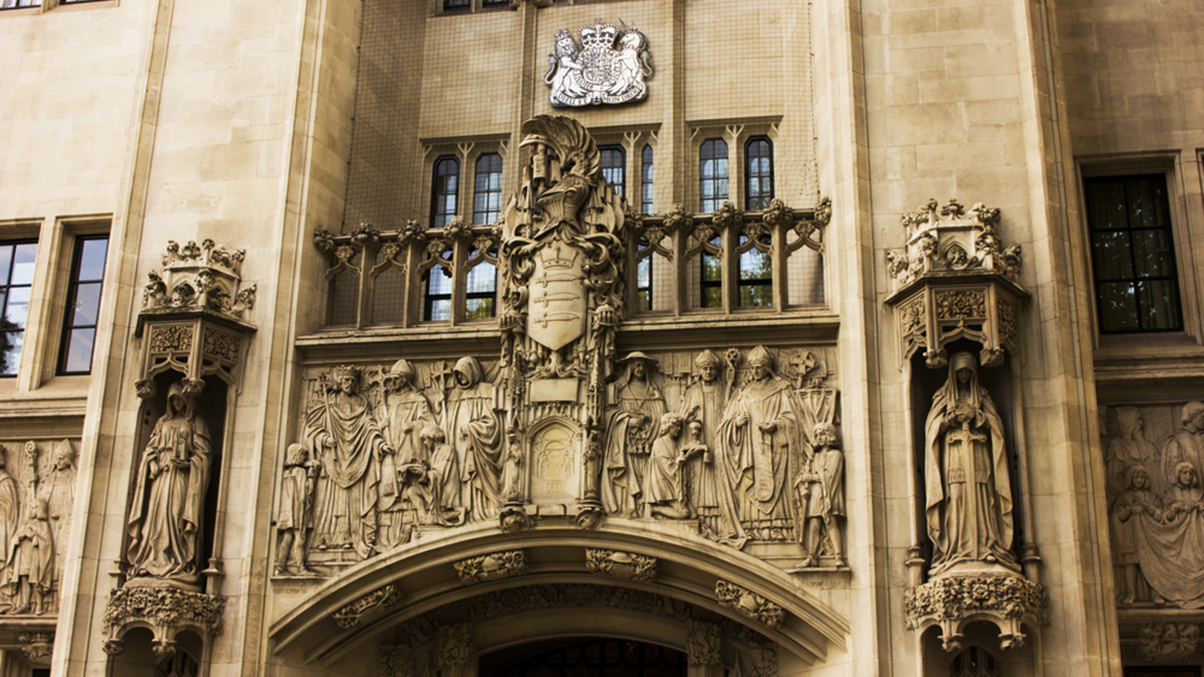The UK Supreme Court handed down judgment in the case of Okpabi and others v. Royal Dutch Shell plc and another [2021] UKSC 3 on 12 February 2021. The judgment is the latest in a string of recent cases examining the potential for parent companies to owe an English common law duty of care to third parties that suffer harm from the acts or failings of overseas subsidiaries. In this article, Daniel Wilmot examines the decision and its implications for multinationals with headquarters in the UK.
UK-headquartered multinationals have kept a watchful eye on a string of cases that have most recently culminated with the UK Supreme Court’s decision in Okpabi, and rightly so. Claims brought against Unilever, Shell and Vedanta have focused minds at general counsel and C-suite levels. That is not surprising. These cases have the potential to circumnavigate the ring-fencing of liabilities through corporate group structuring. Many of their seeming successes so far have been driven by the very group policies, procedures and standards that multinationals often deploy precisely to manage group-wide risks.
How concerned should UK-based parent companies be? Could these cases represent the tipping point for a future flood of liabilities premised upon the acts of overseas subsidiaries? The short answer is that it is too soon to tell. While alarm bells have fairly been primed, it is not yet the case that they should be rung. At the very least, not loudly. That is because Okpabi and its related predecessor decisions all have to be understood in their proper context. To date, the battlegrounds in those cases have all broadly been on questions of jurisdiction. The English courts have not yet been required to determine whether the parent companies in those cases are to be held liable. So the question of whether such liability exists in practice (beyond the statements of principle that have to date been given) remains unanswered.
That said, the answer may not be too far away. Arguably, these cases have already revealed a greater preparedness of the English courts not to dismiss such claims out of hand on grounds of corporate separability or group structuring. They also clearly show that each case will be sensitive to the relevant facts.
Senior executive management can be forgiven for having already begun the task of assessing and, where necessary, revisiting interactions between parents and subsidiaries within the group and group-wide approaches to the management of risk and related responsibilities. This is particularly so where subsidiary operations are high-risk and take place in jurisdictions where claims are difficult to pursue.
Background facts in Okpabi
The originating claims were brought by two communities of individuals residing within Rivers State in Nigeria. In both cases, the communities alleged that oil spills caused widespread environmental damage, contaminating water sources used by the communities for drinking, fishing, agriculture and other purposes. The spills were said to have come from oil pipelines and associated infrastructure operated by The Shell Petroleum Development Company of Nigeria Ltd (“SPDC”). A Nigerian registered company, SPDC operated the pipeline on behalf of an unincorporated joint venture between various parties. SPDC is a subsidiary of Royal Dutch Shell plc (“Shell”), the UK-domiciled parent company of the multinational Shell group of companies.
Claims were brought against Shell and SPDC. In respect of Shell, and notwithstanding the corporate ‘separability’ between it and SPDC, the communities’ case was that Shell nonetheless owed the communities a duty of care due to the significant control it had exercised over SPDC’s relevant operations and the responsibility it had assumed in respect of those operations.
The issue before the Supreme Court and its contextual importance
In this case, Shell was being used as a so-called ‘anchor’ defendant in order to ground (or anchor) within the scope of the English courts’ jurisdiction what might otherwise have been exclusively Nigerian (and Nigerian law) issues and claims. With SPDC being a joint defendant, that approach generated the need to obtain the English court’s permission to serve the claim form on SPDC outside the jurisdiction, given SPDC was a Nigerian resident company. Obtaining such permission required the claimants to clear a number of hurdles, one of which was demonstrating that their claims against Shell raised a “real issue to be tried”. That standard imputed the summary judgment test: did the claims have a “real prospect of success”?
It was largely this issue that escalated to the Supreme Court, and the proceedings were thus confined to this specific jurisdictional question. This context is important for three reasons. First, the issue was not directed at determining whether Shell owed a duty of care to the communities. Second, the hurdle to be cleared (namely, whether the claims had a real prospect of success) was lower than the hurdle the communities will need to clear if and when its claims are eventually determined. Third, as a result of the Supreme Court’s decision, there are likely to be further battle lines drawn between the parties as to whether the claimants can clear the other hurdles that remain before jurisdiction can be conclusively established in the case. (One such hurdle is CPR 6.37(3), which is addressed further below.)
In the case of Okpabi, this probably means that the alarm bells at Shell are not ringing. At least, not yet. The Supreme Court found (contrary to the judgments of the English High Court and Court of Appeal) that the communities’ claims did have a real prospect of success (as addressed further below). The communities will now likely need to clear the remaining jurisdictional hurdles before the substance of their claims (namely, whether Shell did owe a duty of care and, if so, whether that duty was breached) will be decided by the English High Court. Given what lies ahead, any judgment on the substance of the claims is unlikely to arrive until 2022 and quite possibly beyond that, so any nervous thumbs will need to twiddle for some time.
In the meantime, attention is likely to turn to the High Court’s anticipated judgment in Vedanta. In that similar case, the UK Supreme Court handed down its judgment on issues of jurisdiction on 10 April 2019 (about which we commented here), paving the way for a trial on the substance of the claims to proceed. In that dispute, claims have been brought by Zambian individuals against a UK-based parent company, Vedanta Resources Ltd, and its Zambian part-owned subsidiary, Konkola Copper Mines plc, in connection with alleged discharges of toxic matter from a copper mine owned by the subsidiary. The High Court’s judgment in Vedanta is thus hotly anticipated. However, following the Supreme Court’s judgment on jurisdiction, the Vedanta dispute (which is comprised of at least three sets of separate proceedings against the defendants) has been made subject to a group litigation order. That will no doubt cause delay, so the High Court’s judgment in Vedanta may be some time yet.
Until the Vedanta High Court judgment is handed down, whether a duty of care will be found in that case remains guesswork.
Despite such questions of substance remaining to be determined, the reasoning of the Supreme Court in the Okpabi and Vedanta cases offers few crumbs of comfort to UK-based parent companies in certain respects.
What are the implications of what the Supreme Court decided in Okpabi (and Vedanta)?
So what can be learned now from the Supreme Court’s decision in Okpabi? In many ways, its judgment is an endorsement of its analysis and reasoning in Vedanta. That fact in and of itself is helpful as it (re)emphasises and (re)clarifies the court’s reasoning on the central issues.
So, at this stage, there are at least three implications that merit attention by UK corporates.
- The basis for the alleged duty of care is clear(er)
As with Vedanta, the alleged duty of care in Okpabi was premised on the level of control exercised and/or responsibility assumed by Shell over the relevant operations of SPDC. The test for whether such a duty of care will be found to exist was reconfirmed by the Supreme Court as “…[dependent] on the extent to which, and the way in which, the parent availed itself of the opportunity to take over, intervene in, control, supervise or advise the management of the relevant operations (including land use) of the subsidiary”.In the case of Okpabi, the communities’ claim was founded on a variety of framework documents issued by Shell through which it imposed (among other things) mandatory standards upon its subsidiaries and systems of monitoring and compliance by Shell of those standards. Further, weight was placed on the Shell group being structured along business and function lines distinct from its corporate structure. This resulted in a system of management that gave precedence to organisational approvals (for example, by the head of a cross-group business or function) over corporate approvals (for example, by the board or managing director of a particular corporate entity). The communities also adduced witness statement evidence from former SPDC employees who attested to the alleged levels of intervention and control by Shell over the operations of SPDC.The Supreme Court did not criticise Shell for having the alleged systems of governance in place. These are unlikely to be alien to many multinational corporations, particularly those operating in high-risk business lines, such as oil and gas exploration and production.
The obvious question that now arises is whether such systems, put in place in good faith to manage group-wide risk (amongst other things), may now have had the unintended effect of exposing UK-based parent companies to the risk of inheriting certain liabilities of their subsidiaries. That unintended effect must now be seen as a genuine risk, bolstered by the Supreme Court’s dismissal of any generalised presumption or assumption that a parent company would not go to the trouble of establishing a network of overseas subsidiaries with their own management structures if it nonetheless intended to assume responsibility for the operations of those subsidiaries. (This had been seemingly assumed by Sir Geoffrey Vos as part of his judgment delivered in the Court of Appeal’s decision in the Okpabi case. It is now clear following the Supreme Court’s decision that, in its view, he was wrong to have done so.)
The short point is that notwithstanding the High Court’s judgments being awaited, there may already be good reason for UK parent companies to revisit governance systems carefully. Indeed, the Supreme Court was clear to dismiss any suggestion that a parent could never incur a duty of care regarding the activities of a subsidiary merely by laying down group-wide policies and guidelines and expecting the management of each subsidiary to comply with them. Echoing its Vedanta decision, there is no such limiting principle. For example, group guidelines could contain systemic errors that, when implemented, cause harm to third parties.
- Have the floodgates already been opened to claims?
Echoing its comments in its Vedanta judgment (as we previously addressed here), the Supreme Court again criticised the levels of evidence adduced by the parties to assist the court in assessing the necessary threshold question of whether there was a real issue to be tried. While that criticism was (another) stark warning to future litigants and their lawyers, the Supreme Court’s associated commentary may have sown the seeds for a future upsurge of similar claims.First, the Supreme Court was clear that determination of the threshold question should not involve a mini-trial. The court’s analytical focus should be on the particulars of claim and whether, if the facts asserted by the claimant in those particulars are true, the relevant claim has the necessary reasonable prospect of success. Those asserted facts “should be accepted unless, exceptionally, they are demonstrably untrue or unsupportable”. In practice, it may be a challenging task for any defendant to so undermine such asserted facts at this preliminary stage.Second, the Supreme Court was critical of the Court of Appeal’s decision to discount possible further relevant facts becoming known at the documentary disclosure stage later in proceedings. Rather, the court must not ignore reasonable grounds that may be disclosed at this early stage for believing that a fuller investigation of the facts may add to or alter the evidence relevant to the issue.
If a claimant can show reasonable grounds for believing that disclosure may materially add to the evidence relevant to the threshold question, that must be factored. As the Supreme Court said: “The importance of internal corporate documents is well recognised in the context of cases concerning the negligence liability of a parent company for the acts of its subsidiary.” This is likely to act as a boost for any claimant seeking to clear the necessary threshold question, given the stated test for establishing a duty of care and the fact that relevant-but-as-yet-undisclosed internal corporate documents will almost always exist.
The possible upshot of these two remarks is the perception of lowering the bar for clearing the necessary hurdle of demonstrating that there is a real issue to be tried. Claimants may take significant comfort from these decisions as to the improved prospects of persuading the English courts to accept jurisdiction for claims against UK-based parents premised upon breaches of duty, even if the High Court has yet to decide whether such duties did exist for Shell and Vedanta. This may result in an upswing in cases trying to fix such parents with the liabilities of subsidiaries, even if the Supreme Court decisions add little to the prospect of such claims being successful. That all said, any emboldening of claimants in this way is perhaps counter-balanced by what follows.
- Have the jurisdictional hurdles been raised further?
Of the recent decisions, only the Vedanta case has to date cleared the hurdles necessary to successfully establish the jurisdiction of the English courts against both the UK-domiciled parent and the relevant ‘foreign’ subsidiary. Those hurdles are complex and would require a detailed article of their own. But two points suffice for present purposes to illustrate that not all of the cards are in claimant hands.First, the issue of whether the English courts have jurisdiction over the parent company in question was in each case summarily, and simply, determined. By reason of applicable EU law (more specifically, the so-called Recast Brussels Regulation), the answer was ‘yes’ and arguments of ‘forum non conveniens’ (essentially that the English court is not the proper place to hear a claim) were not available. With the UK no longer subject to the Recast Brussels Regulation as a result of Brexit, it remains to be seen whether ‘forum non-conveniens’ arguments will now revive, particularly as the decisions to date have perhaps suggested that the claimants cases on jurisdiction could have failed had such arguments been available. That said, with the UK having already applied to join the Lugano Convention (which largely replicates the wording of the Recast Brussels Regulation on the relevant point), any hope on this front could prove to be short lived.Second, contrary to the decisions of the High Court and Court of Appeal in the Vedanta case, the Supreme Court in its judgment in that case was significantly slower to exercise its discretion (under Civil Prodecure Rule (CPR) 6.37(3)) to give the necessary permission to serve the claim form on the Zambian subsidiary. Had it not been for the fact that the claimants were practically precluded from pursuing their claims in their local Zambian courts on grounds of access to justice, it is arguable that the Supreme Court would have declined permission. Interestingly, whether permission should be given under CPR 6.37(3) is one of the outstanding jurisdictional questions that remains to be determined in the Okpabi case. The direction of travel so far suggests that the claimants in Okpabi might struggle to persuade the court that similar access to justice issues arise in Nigeria. The Supreme Court’s guidance on CPR 6.37(3) in the Vedanta case may, therefore, become a source of some hope for parent companies in the context of subsidiary liability issues.
Concluding remarks
A third similar case was recently brought against Unilever plc and one of its Kenyan subsidiaries, Unilever Tea Kenya Limited. The claimants, a group of current and former employees of the subsidiary and residents of tea plantations run by the subsidiary, alleged that they were the victims of serious inter-tribal violence inflicted by third-party mobs on the tea plantations, which, in breach of the alleged duty of care, Unilever and its subsidiary failed to protect them against.
At both first instance and the Court of Appeal, the claimants’ case was dismissed for failing to clear one of the jurisdictional threshold questions that was also hotly disputed in the Vedanta and Okpabi decisions: namely, whether the claims against the parent company had a real prospect of success. Interestingly, the claimants’ application for permission to appeal to the Supreme Court was denied, despite that application following the Supreme Court’s decision in Vedanta, which paved the way for the claimants in that case to prosecute their claims.
Whether the first instance and appellate courts in Unilever would have decided differently had they had the benefit of the Supreme Court’s reasoning in Vedanta is consigned to academic debate. Certainly, the Supreme Court’s denial of permission to appeal cannot necessarily be construed as it agreeing with the decisions of those subordinate courts. But, what it does underline is just how fact-sensitive the relevant analysis will always need to be. In its comparatively short judgment, the Court of Appeal in Unilever was clearly persuaded by the evidence demonstrating that the subsidiary received no advice from Unilever in respect of the crises that led to the alleged violence. Plus, the fact that the subsidiary was responsible for devising its own risk management policies and handling such crises (and that it did then so handle them).
Whether Unilever becomes another future safe harbour for UK parent companies (alongside the CPR 6.37(3) jurisdictional hurdle) in the face of future claimants seeking to anchor their claims within the English court jurisdiction remains to be seen.
You can find further information regarding our expertise, experience and team on our International Arbitration page.
If you require assistance from our team, please contact us or alternatively request a call back from one of our lawyers by submitting this form.
Subscribe – In order to receive our news straight to your inbox, subscribe here. Our newsletters are sent no more than once a month.






